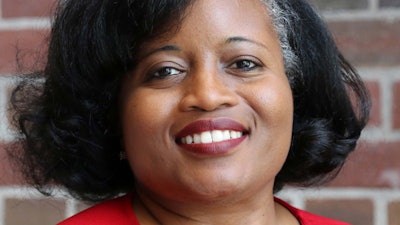The recent announcement of Dr. Claudine Gay’s resignation as president of Harvard University swiftly spread through the news and has been an ongoing conversation, particularly among those within higher education academic communities. Gay had been widely criticized for her responses alongside two other college presidents, also women, at a congressional hearing on antisemitism, after which, she clarified the institution’s stance. Further, she had been subjected to accusations of plagiarism, which she was diligently working to address. The mix of baseless attacks on her leadership, integrity, and qualifications, combined with labeling her as an affirmative action hire signaled the beginning of the end.
 Dr. Lori Patton Davis
Dr. Lori Patton Davis
Gay’s resignation was not only courageous, but it was the right decision. There is no amount of what University of Michigan Public Health Professor Arline Geronimus termed “weathering” the storm and no institution worthy enough for Black women to be the sacrificial lambs on the neoliberal academy’s altar. We live in a world that thrives off of Black women’s labor but fails to acknowledge those contributions and never extends protection from the harms inflicted upon us in the process of extending that labor. Black women do not have and never had the luxury of being regarded as worthy of protection. We have always had to save ourselves. Gay saved herself and, for that, we should all be grateful.
In response to her resignation announcement, some conservatives and political pundits expressed satisfaction as if to suggest a win had occurred or that their clearly orchestrated attack had succeeded. Although there are some who deem her resignation a win for the team, this is misplaced celebration. Her resignation in many ways is a loss; a loss of possibility.
Institution-sanctioned violence prohibits possibility and relies on fear and silence to cultivate impossibility. I wonder what would happen if institutions rejected the notion of impossibility where Black women are concerned and instead reframed them as possibility models, a concept Chayla Haynes and I unpacked in a 2018 piece. Prior to her selection as president of Harvard, Gay had been an impossibility for nearly 400 years of that institution’s history. Once hired into the role, she was allowed no space to flourish and be the president that Harvard claimed to value and respect. We protect and defend what we value and respect and for a moment this appeared to be the case as faculty and students rallied around Gay. For a moment, Harvard stood on business, but that level of institutional support succumbed to internal and external pressures, steeped in racist, sexist, capitalist, patriarchal white supremacy, the very foundations of this country and higher education. This moment will reside within Harvard’s institutional history and the history of the US as a reminder of Black women’s disposability and erasure. The failure to see Gay as a possibility rather than a liability is not a win. It is a loss. Gay’s resignation as president is Harvard’s loss.
Dr. Lori Patton Davis is a professor of higher education and student affairs at The Ohio State University.






















